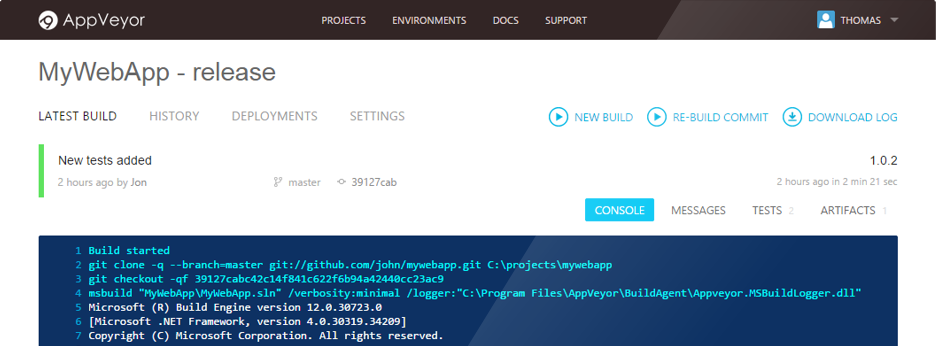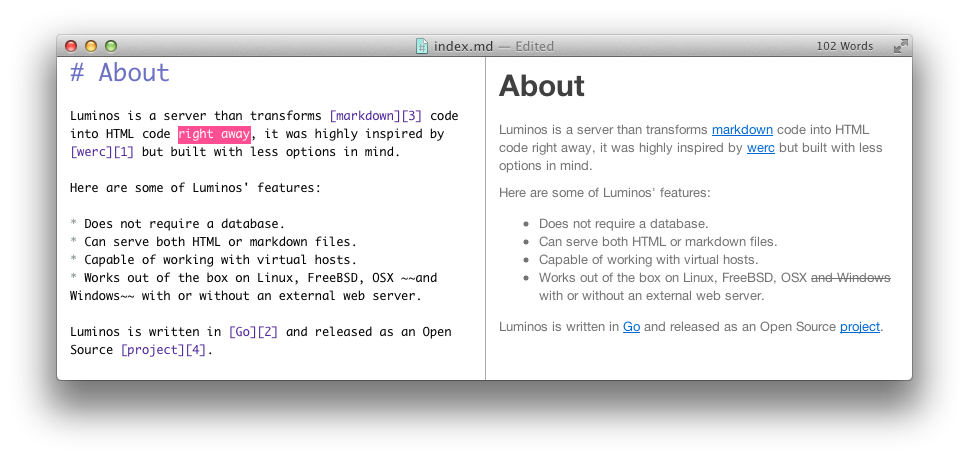http://www.makotemplates.org/ ᔥ
Mako is a template library written in Python. It provides a familiar, non-XML syntax which compiles into Python modules for maximum performance. Mako’s syntax and API borrows from the best ideas of many others, including Django and Jinja2 templates, Cheetah, Myghty, and Genshi. Conceptually, Mako is an embedded Python (i.e. Python Server Page) language, which refines the familiar ideas of componentized layout and inheritance to produce one of the most straightforward and flexible models available, while also maintaining close ties to Python calling and scoping semantics.
Example:
<%inherit file="base.html"/>
<%
rows = [[v for v in range(0,10)] for row in range(0,10)]
%>
<table>
% for row in rows:
${makerow(row)}
% endfor
</table>
<%def name="makerow(row)">
<tr>
% for name in row:
<td>${name}</td>\
% endfor
</tr>
</%def>









